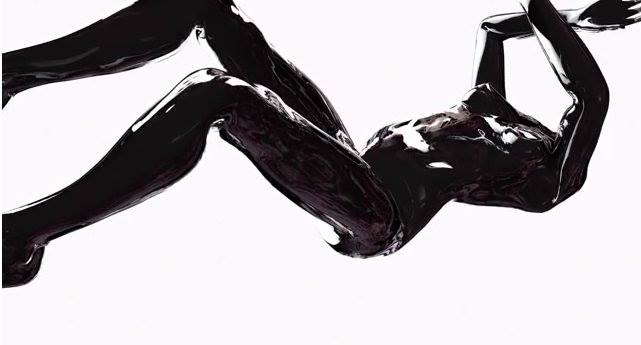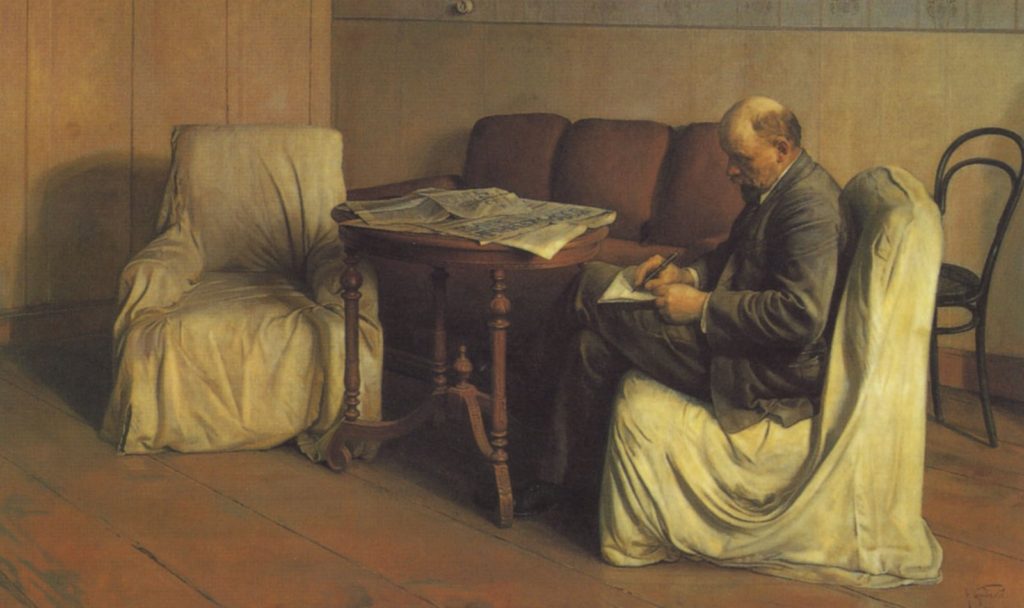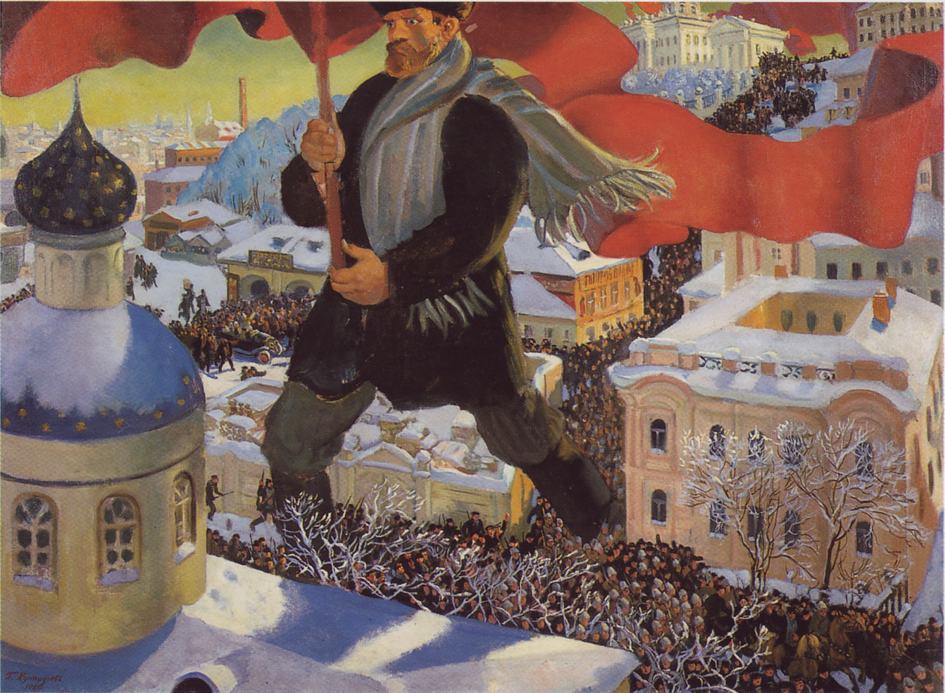
ΑΘΗΝΑ, Δευτέρα 10/7/2019, 19:30
Αυτοδιαχειριζόμενο Στέκι Πέρασμα
(Ζωοδόχου Πηγής 95-97 & Ισαύρων)
Τέσσερις συναντήσεις αυτομόρφωσης
1η συνάντηση (10/7) - Το κεφάλαιο στην Ιστορία
• Μενάντ — Σχετικά με τη νεώτερη ιστορία και ελευθερία: Για τους Μαρξ και Ένγκελς
• Μαρξ — απόσπασμα περί του γίγνεσθαι (από τα Grundrisse, 1857-58)
• Χορκχάιμερ — επιλογές από το Λυκόφως (1926–31)
• Κατρόουν — Το κεφάλαιο στην ιστορία (2008)
+ Διάγραμμα: 10.000 χρόνια ιστορίας
• Κατρόουν — Ταξική συνείδηση (από μαρξιστική σκοπιά) σήμερα (2012) (διατίθεται μόνο στα αγγλικά)
2η (17/7) - Γυναίκες: η διαρκέστερη επανάσταση (όλα τα κείμενα στα αγγλικά)
• Μίτσελ — Γυναίκες: η διαρκέστερη επανάσταση (1966)
• Τσέτκιν και Λένιν — Συνέντευξη για το γυναικείο ζήτημα (1920)
+ Hoare — Κριτική στη Μίτσελ (1967)
+ Μίτσελ — απάντηση στον Hoare (1967)
3η (24/7) - Σεξουαλικότητα και καπιταλισμός (όλα τα κείμενα στα αγγλικά)
• Αντόρνο — Σεξουαλικά ταμπού και δίκαιο σήμερα (1963) (διατίθεται μόνο στα αγγλικά)
• Ντ' Εμίλιο — Καπιταλισμός και γκέι ταυτότητα (1983) (διατίθεται μόνο στα αγγλικά)
4η (31/7) - Η Αριστερά και ο μαρξισμός
• Κολακόφσκι — “Η έννοια της Αριστεράς” (1968)
• Μαρξ — Για μια αμείλικτη κριτική του υπάρχοντος (γράμμα στον Ρούγκε, Σεπτέμβρης 1843)
• Κατρόουν — “Η μαρξιστική υπόθεση” (2010)
II. Introduction to revolutionary Marxism
Knoxville: Thursdays 6:30–9PM EST
University of Tennessee
Humanities and Social Sciences Building
1115 Volunteer Blvd. room 103A
Campus parking free after 6 PM
Suggested parking by Hodges Library or Haslam Music Center
• required / + recommended reading
Marx and Engels readings pp. from Robert C. Tucker, ed., Marx-Engels Reader (Norton 2nd ed., 1978)
Searchable PDF e-Book of all readings can be downloaded here
Recommended winter break preliminary readings:
+ Leszek Kolakowski, “The concept of the Left” (1968)
+ Richard Appignanesi and Oscar Zarate / A&Z, Introducing Lenin and the Russian Revolution / Lenin for Beginners (1977)
+ Sebastian Haffner, Failure of a Revolution: Germany 1918–19 (1968)
+ Tariq Ali and Phil Evans, Introducing Trotsky and Marxism / Trotsky for Beginners (1980)
+ James Joll, The Second International 1889–1914 (1966)
+ Edmund Wilson, To the Finland Station: A Study in the Writing and Acting of History (1940), Part II. Ch. (1–4,) 5–10, 12–16; Part III. Ch. 1–6
Film screenings
Sunday, January 21 (8:00 PM)
• Rosa Luxemburg (1986)
Meet in the Lindsay Young Auditorium on the 1st floor of Hodges Library.
Sunday, January 29 (8:00 PM)
• The Young Karl Marx (2017)
Meet in the Commons Practice Presentation Room 220-E on the 2nd floor of Hodges Library.
Suggested home viewing (click for stream/download)
• 37 Days (2014) [Episode 1] [Episode 2] [Episode 3]
• Fall of Eagles (1974) episodes: "Absolute Beginners", "The Secret War", and "End Game"
• Oliver Stone's Untold History of the United States (2012) Episodes A (1900-20) and B (1920-40)
• Reds (1981) [download currently unavailable]
February
Winter 2018
I. What is the "Left?" -- What is "Marxism?"
Week 11. What is Marxism? VI. Class consciousness | Jan. 18, 2018
• Lukács, Original Preface (1922), “What is Orthodox Marxism?” (1919), “Class Consciousness” (1920), History and Class Consciousness (1923)
+ Marx, Preface to the First German Edition and Afterword to the Second German Edition (1873) of Capital (1867), pp. 294–298, 299–302
Week 12. What is Marxism? VII. Ends of philosophy | Jan. 25, 2018
• Korsch, “Marxism and philosophy” (1923)
+ Being and becoming (freedom in transformation) / immanent dialectical critique chart of terms
+ Marx, To make the world philosophical (from Marx's dissertation, 1839–41), pp. 9–11
+ Marx, For the ruthless criticism of everything existing (letter to Arnold Ruge, September 1843), pp. 12–15
+ Marx, "Theses on Feuerbach" (1845), pp. 143–145
Winter–Spring 2018
II. Introduction to revolutionary Marxism
Week 13. Revolutionary leadership | Feb. 1, 2018
• Rosa Luxemburg, “The Crisis of German Social Democracy” Part 1 (1915)
• J. P. Nettl, “The German Social Democratic Party 1890–1914 as a Political Model” (1965)
• Cliff Slaughter, “What is Revolutionary Leadership?” (1960)
Week 14. Reform or revolution? | Feb. 8, 2018
• Luxemburg, Reform or Revolution? (1900/08)
+ Eugene Debs, "Competition versus Cooperation" (1900)
Week 15. Lenin and the vanguard party | Feb. 15, 2018
• Spartacist League, Lenin and the Vanguard Party (1978)
Week 16. What is to be done? | Feb. 22, 2018
• V. I. Lenin, What is to be Done? (1902)
+ Richard Appignanesi and Oscar Zarate / A&Z, Introducing Lenin and the Russian Revolution / Lenin for Beginners (1977)
Week 17. Mass strike and social democracy | Mar. 1, 2018
• Luxemburg, The Mass Strike, the Political Party and the Trade Unions (1906)
+ Luxemburg, "Blanquism and Social Democracy" (1906)
Week 18. Permanent revolution | Mar. 8, 2018
• Leon Trotsky, Results and Prospects (1906)
+ Tariq Ali and Phil Evans, Introducing Trotsky and Marxism / Trotsky for Beginners (1980)
Week 19. Mar. 15, 2018 (spring break)
Week 20. State and revolution | Mar. 22, 2018
• Lenin, The State and Revolution (1917)
Week 21. Imperialism | Mar. 29, 2018
• Lenin, Imperialism, the Highest Stage of Capitalism (1916)
+ Lenin, Socialism and War Ch. 1 The principles of socialism and the War of 1914–15 (1915)
Week 22. Failure of the revolution | Apr, 2018
• Luxemburg, “What does the Spartacus League Want?” (1918)
• Luxemburg, “On the Spartacus Programme” (1918)
+ Luxemburg, "German Bolshevism" (AKA "The Socialisation of Society") (1918)
+ Luxemburg, “The Russian Tragedy” (1918)
+ Luxemburg, “Order Reigns in Berlin” (1919)
+ Eugene Debs, “The Day of the People” (1919)
+ Sebastian Haffner, Failure of a Revolution: Germany 1918–19 (1968)
Week 23. Apr. 12, 2018 [Platypus international convention]
Week 24. Retreat after revolution | Apr. 19, 2018
• Lenin, “Left-Wing” Communism: An Infantile Disorder (1920)
+ Lenin, "Notes of a Publicist" (1922)
Week 25. Dialectic of reification | Apr. 26, 2018
• Lukács, “The Standpoint of the Proletariat” (Part III of “Reification and the Consciousness of the Proletariat,” 1923). Available in three sections from marxists.org: section 1 section 2 section 3
+ Being and becoming (freedom in transformation) / immanent dialectical critique chart of terms
Week 26. Lessons of October | May 3, 2018
• Trotsky, The Lessons of October (1924) [PDF] + Trotsky, "Stalinism and Bolshevism" (1937)
Week 27. Trotskyism | May 10, 2018
+ Trotsky, "To build communist parties and an international anew" (1933)
• Trotsky, The Death Agony of Capitalism and the Tasks of the Fourth International (1938)
+ Trotsky, "Trade unions in the epoch of imperialist decay" (1940)
+ Trotsky, Letter to James Cannon (September 12, 1939)
Week 28. The authoritarian state | May 17, 2018
• Friedrich Pollock, "State Capitalism: Its Possibilities and Limitations" (1941) (note 32 on USSR)
• Max Horkheimer, "The Authoritarian State" (1942)
Week 29. On the concept of history | May 24, 2018
• epigraphs by Louis Menand (on Edmund Wilson) and Peter Preuss (on Nietzsche) on the modern concept of history
+ Charles Baudelaire, from Fusées [Rockets] (1867)
+ Bertolt Brecht, "To posterity" (1939)
+ Walter Benjamin, "To the planetarium" (from One-Way Street, 1928)
+ Benjamin, "Experience and poverty" (1933)
+ Benjamin, Theologico-political fragment (1921/39?)
• Benjamin, "On the Concept of History" (AKA "Theses on the Philosophy of History") (1940) [PDF]
• Benjamin, Paralipomena to "On the Concept of History" (1940)
+ Being and becoming (freedom in transformation) / immanent dialectical critique chart of terms
Week 30. Reflections on Marxism | May 31, 2018
• Theodor Adorno, “Reflections on Class Theory” (1942)
• Adorno, “Imaginative Excesses” (1944–47)
+ Being and becoming (freedom in transformation) / immanent dialectical critique chart of terms
+ Adorno, Dedication, "Bequest", "Warning: Not to be Misused" and "Finale", Minima Moralia (1944–47)
+ Horkheimer and Adorno, "Discussion about Theory and Praxis" (AKA "Towards a New Manifesto?") [Deutsch] (1956)
Week 31. Theory and practice | Jun. 7, 2018
+ Adorno, “On Subject and Object” (1969)
• Adorno, “Marginalia to Theory and Praxis” (1969)
• Adorno, “Resignation” (1969)
+ Being and becoming (freedom in transformation) / immanent dialectical critique chart of terms
+ Adorno, “Late Capitalism or Industrial Society?” (AKA “Is Marx Obsolete?”) (1968)
+ Esther Leslie, Introduction to the 1969 Adorno-Marcuse correspondence (1999)
+ Adorno and Herbert Marcuse, correspondence on the German New Left (1969)
A special holiday edition, with guests Reid Kotlas (Platypus Vermont, and Socialist Party USA) and Efraim Carlebach (Platypus London), on the Left today and the problem of the Democratic and Labor Parties. What do the socialists want anyway?
We discuss:
An interview with Lee Carter, a democratic socialist who defeated a Republican legislator in Virginia in the recent elections
www.jacobinmag.com/2017/11/lee-car…ction-socialist
Seth Ackerman, "A Blueprint for a New Party"
www.jacobinmag.com/2016/11/bernie-…-party-ackerman
An interview with Ian Birchall, a leading figure of the International Socialist tendency for over half a century
platypus1917.org/2017/12/02/uncha…ew-ian-birchall/
Hosted by Audrey Crescenti, Pam Nogales and Laurie Rojas.
Eine Podiumsdiskussion, veranstaltet von der Platypus Affiliated Society an der Universität Wien am 14. Dezember 2017.
Podium:
Franz Schandl (Redaktion Streifzüge)
Emmanuel Tomaselli (Der Funke)
Michael Märzen (Gruppe Arbeiter*innenstandpunkt)
Tobias Schweiger (KPÖ PLUS)
Philipp Eichhorn
Im 20. Jahrhundert tauchte immer wieder die Erinnerung an 1917 auf. Ob die Volksfront der '30er, die Kommunistische Revolution in China 1949 oder die Neue Linke der '60er, die Linke hat versucht sich – ob positiv oder negativ – im Verhältnis zu den Zielen und Ergebnissen von 1917 zu verstehen. Jedoch hat sich seit 1917 das revolutionäre Bewusstsein seiner primären Akteure in verschiedene Oppositionen aufgelöst: Stalinismus und Trotzkismus sehen sich gleichermaßen als das legitime Erbe des Bolschewismus; das Prinzip des Liberalismus steht heute in Opposition zum Prinzip des Sozialismus; Libertarismus wird gegen Autoritarismus ausgespielt; der machiavellistische Lenin gegen die Cassandra der Revolution Luxemburg; der revolutionäre Wille der Zwecke, die die Mittel heiligen gegen die prinzipiellen emanzipatorischen Methoden und die Tugend der praktischen Niederlage. Gleichzeitig wurde die Vergeblichkeit sowohl von Lenins als auch Luxemburgs Politik naturalisiert: es wird stillschweigend vorausgesetzt, dass weder das, was Lenin noch das, was Luxemburg zu erreichen versuchten, tatsächlich erreichbar war – weder in ihrer Zeit noch in unserer. Die Prämissen der Revolution selbst stehen in Frage: sind die Formen bürgerlicher Gesellschaft wie Staat, Politik, Arbeit und Kapital überhaupt noch aktuell und damit Widersprüche, die über sich hinausweisen und das Potential ihrer eigenen Überwindung bergen?
- Wie hat sich die Erinnerung an 1917 im Laufe des 20. Jahrhunderts verändert?
- Warum scheint die Erinnerung an 1917 in Oppositionen zerfallen zu sein?
- Stellt uns die Erinnerung an 1917 heute noch Aufgaben und wenn ja in welcher Hinsicht?
- Inwiefern ist 1917 ein wichtiger Bezugspunkt für die Kämpfe der Gegenwart und inwiefern bietet die Gegenwart ein Potential zur Verwirklichung der Ziele von 1917?
Podium:
Franz Schandl (Redaktion Streifzüge)
Emanuel Tomaselli (Der Funke)
Michael Märzen (Gruppe Arbeiter*innenstandpunkt)
Tobias Schweiger (KPÖ PLUS)
Philipp Eichhorn
Donnerstag, 14. Dezember um 19:00
Oskar-Morgenstern-Platz 1, 1. Obergeschoß, Hörsaal 6
Im 20. Jahrhundert tauchte immer wieder die Erinnerung an 1917 auf. Ob die Volksfront der '30er, die Kommunistische Revolution in China 1949 oder die Neue Linke der '60er, die Linke hat versucht sich – ob positiv oder negativ – im Verhältnis zu den Zielen und Ergebnissen von 1917 zu verstehen. Jedoch hat sich seit 1917 das revolutionäre Bewusstsein seiner primären Akteure in verschiedene Oppositionen aufgelöst: Stalinismus und Trotzkismus sehen sich gleichermaßen als das legitime Erbe des Bolschewismus; das Prinzip des Liberalismus steht heute in Opposition zum Prinzip des Sozialismus; Libertarismus wird gegen Autoritarismus ausgespielt; der machiavellistische Lenin gegen die Cassandra der Revolution Luxemburg; der revolutionäre Wille der Zwecke, die die Mittel heiligen gegen die prinzipiellen emanzipatorischen Methoden und die Tugend der praktischen Niederlage. Gleichzeitig wurde die Vergeblichkeit sowohl von Lenins als auch Luxemburgs Politik naturalisiert: es wird stillschweigend vorausgesetzt, dass weder das, was Lenin noch das, was Luxemburg zu erreichen versuchten, tatsächlich erreichbar war – weder in ihrer Zeit noch in unserer. Die Prämissen der Revolution selbst stehen in Frage: sind die Formen bürgerlicher Gesellschaft wie Staat, Politik, Arbeit und Kapital überhaupt noch aktuell und damit Widersprüche, die über sich hinausweisen und das Potential ihrer eigenen Überwindung bergen?
Wie hat sich die Erinnerung an 1917 im Laufe des 20. Jahrhunderts verändert?
Warum scheint die Erinnerung an 1917 in Oppositionen zerfallen zu sein?
Stellt uns die Erinnerung an 1917 heute noch Aufgaben und wenn ja in welcher Hinsicht?
Inwiefern ist 1917 ein wichtiger Bezugspunkt für die Kämpfe der Gegenwart und inwiefern bietet die Gegenwart ein Potential zur Verwirklichung der Ziele von 1917?
Diese Veranstaltung wird im Rahmen der Kritischen Einführungstage an der Uni Wien stattfinden.
Die Kritischen Einführungstage sind eine Reihe von Workshops, Vorträgen, Filmscreenings, Lesekreisen und Stadtspaziergängen, die die Möglichkeit einer kritischen Auseinandersetzung mit Universität und Gesellschaft geben wollen.
Mehr Infos und das vollständige, laufend aktualisierte Programm findet ihr auf: https://krituni.noblogs.org/
Wir bedanken uns bei der ÖH Uni Wien, den unabhängigen Basis- und Institutsgruppen, sowie der autonomen antifa [w] für die Organisation!




